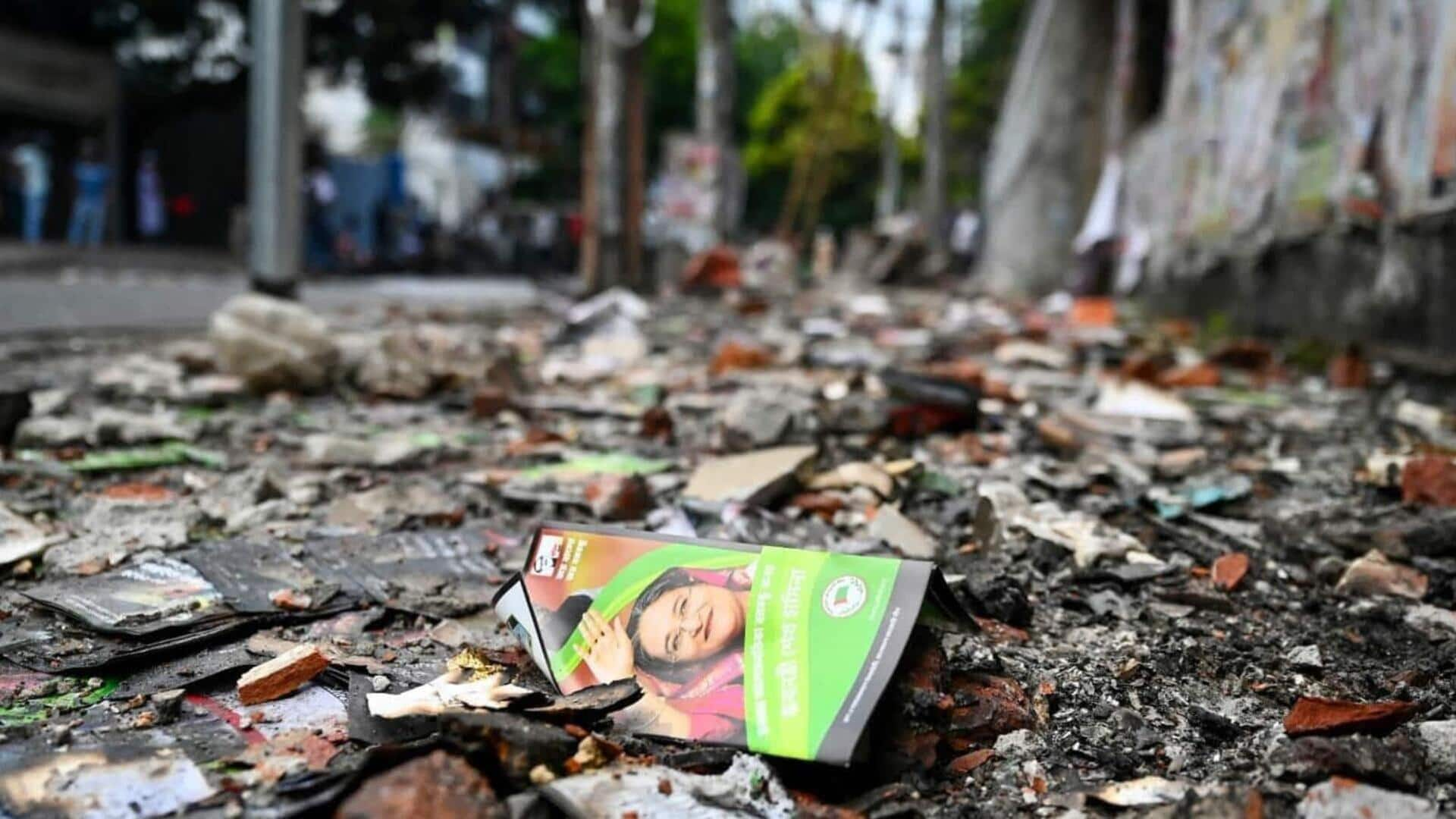
Several Hasina party workers arrested ahead of anti-interim government protest
What's the story
The Bangladesh Army has rounded up hundreds of workers and supporters of the Awami League, former Prime Minister Sheikh Hasina's party. The action comes ahead of a planned protest in Dhaka against the interim government of Muhammad Yunus. Security has been tightened across the country with 191 platoons of Border Guard Bangladesh deployed in Dhaka and other regions.
Protest details
Awami League's planned protest faces government opposition
The Awami League members had planned to gather in areas like Gulisthan, Zero Point, and Nur Hossain Square. Their protest was against alleged false accusations against their leaders, the banning of their student wing Chatra League, and persecution of their workers. However, authorities have denied permission for this demonstration to take place.
Government stance
Interim government labels Awami League as 'fascist party'
The interim government has called the Awami League a "fascist party." Shafiqul Alam, press secretary to Yunus, said "there is no way this fascist party will be allowed to hold protests in Bangladesh." He added any attempts to incite violence wouldn't be tolerated and those attempting to hold rallies or gatherings would "face full force of the law-enforcing agencies."
Protest goals
Awami League's protest aims to secure people's rights
The Awami League has said their protest is aimed at securing people's rights and fighting fundamentalist forces. They said, "Our protest is against taking away the rights of the people of the country; against the rise of fundamentalist forces; against the conspiracy to disrupt the lives of common people." The party appealed to all to join their leaders and workers to protest against misrule of the current regime.
Ban debate
Calls for Awami League ban met with mixed responses
Since Hasina was ousted in August, several political factions have called for a ban on her Awami League. However, Yunus has said that this decision should be made by political parties. Instead, the interim administration has begun transferring and reassigning police officers and bureaucrats in and out of Dhaka. Hasina resigned and fled the country after hundreds were slain in a crackdown on protest against job quotas, which grew into a movement demanding her removal.